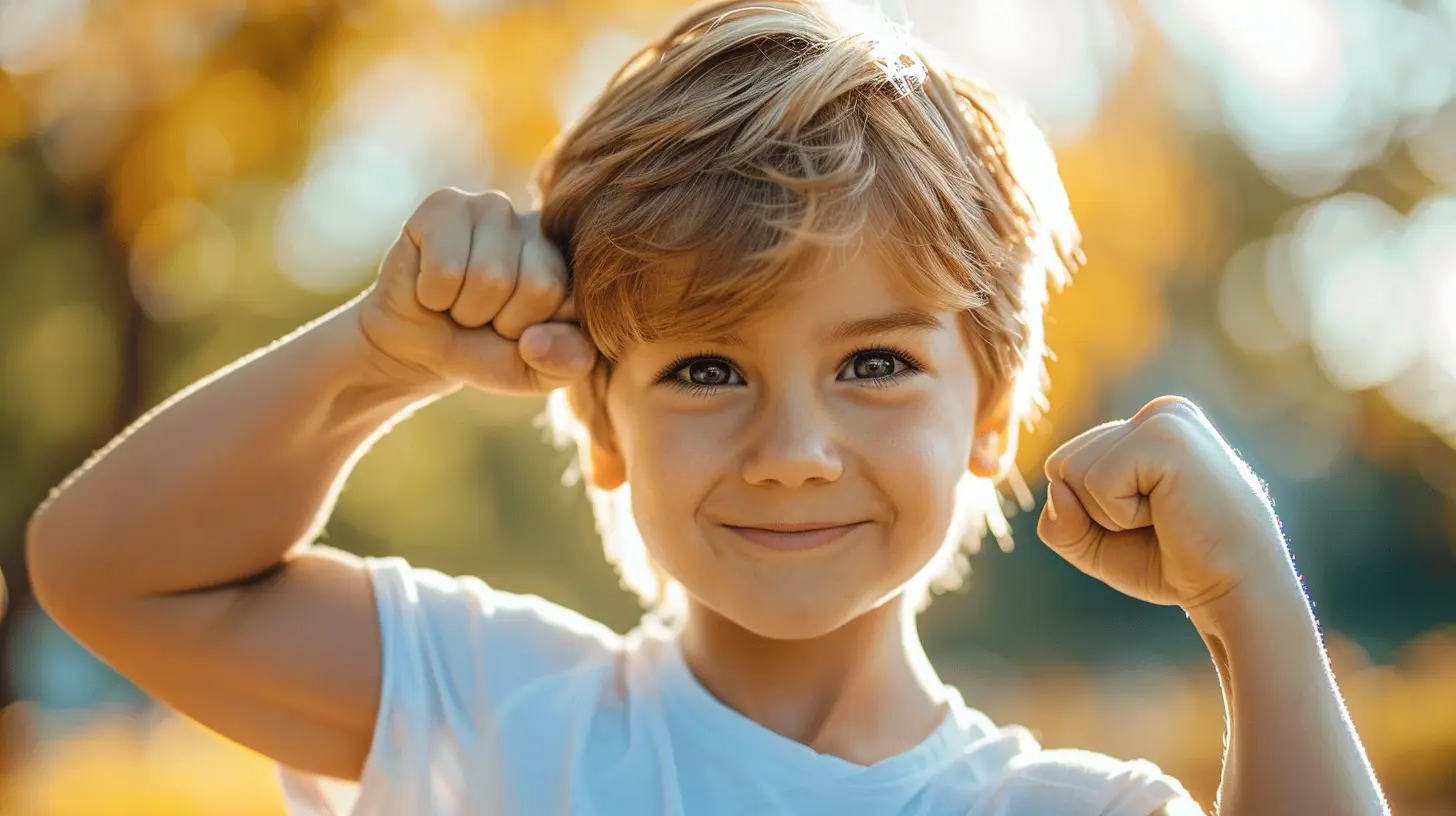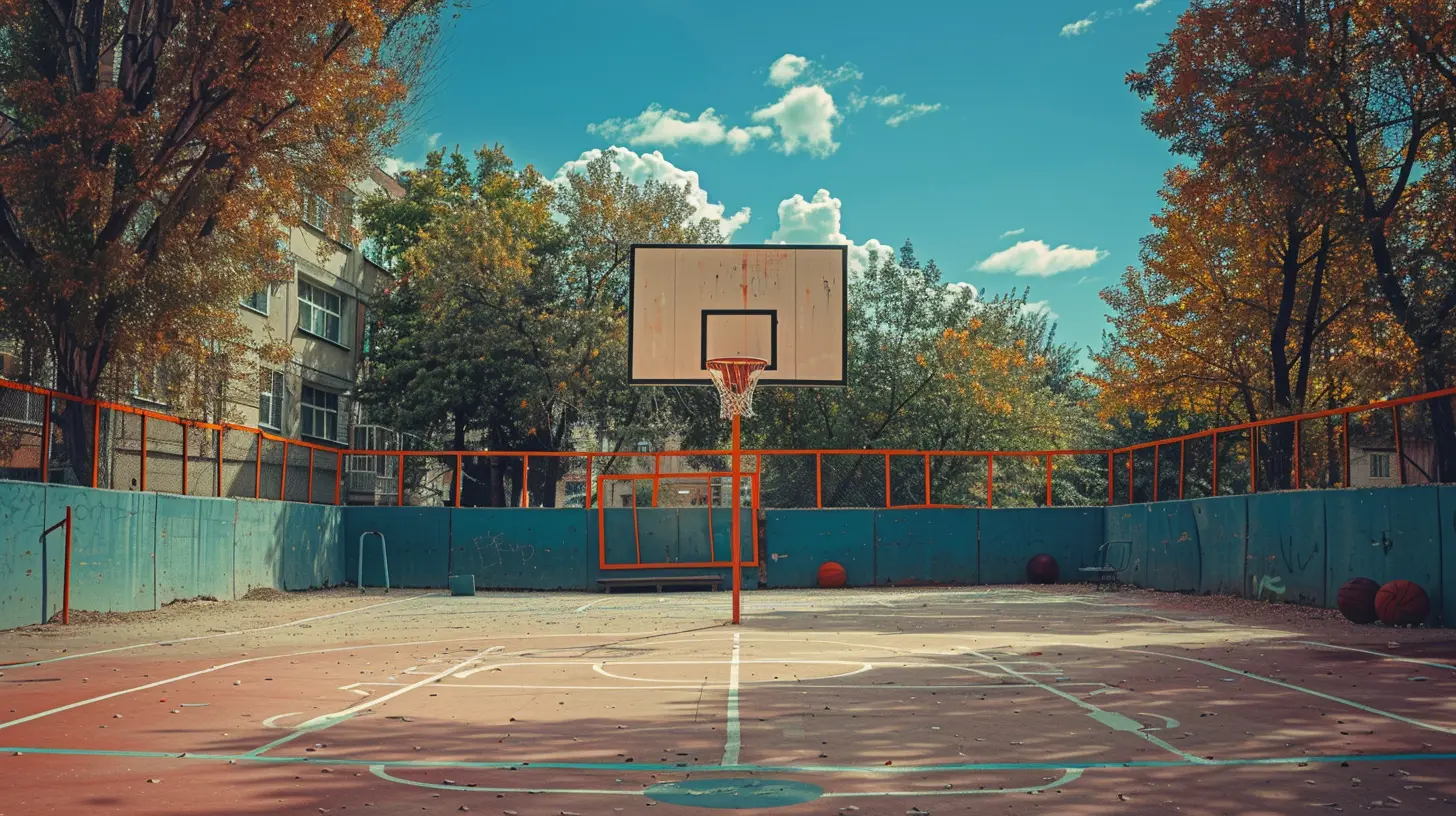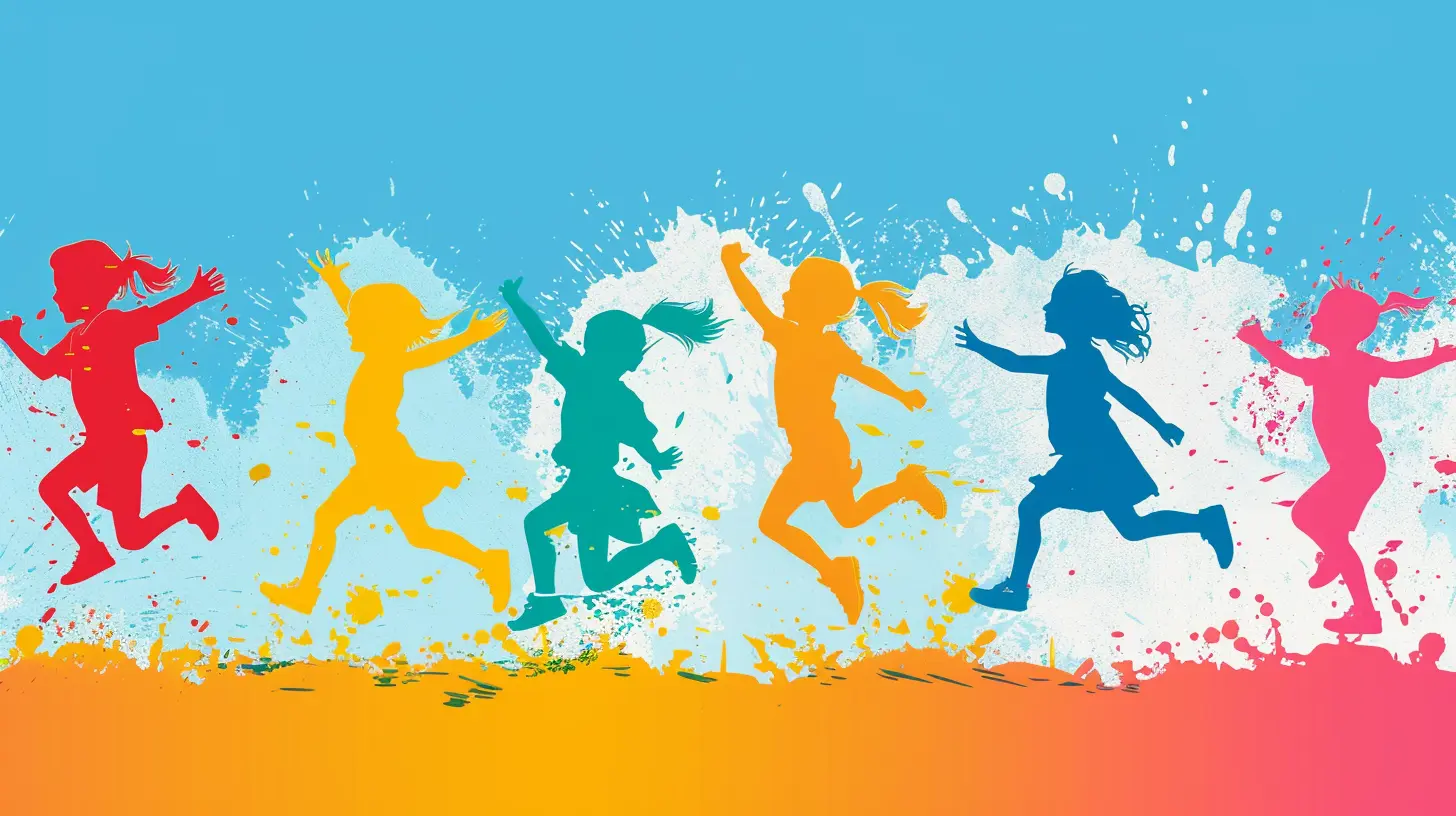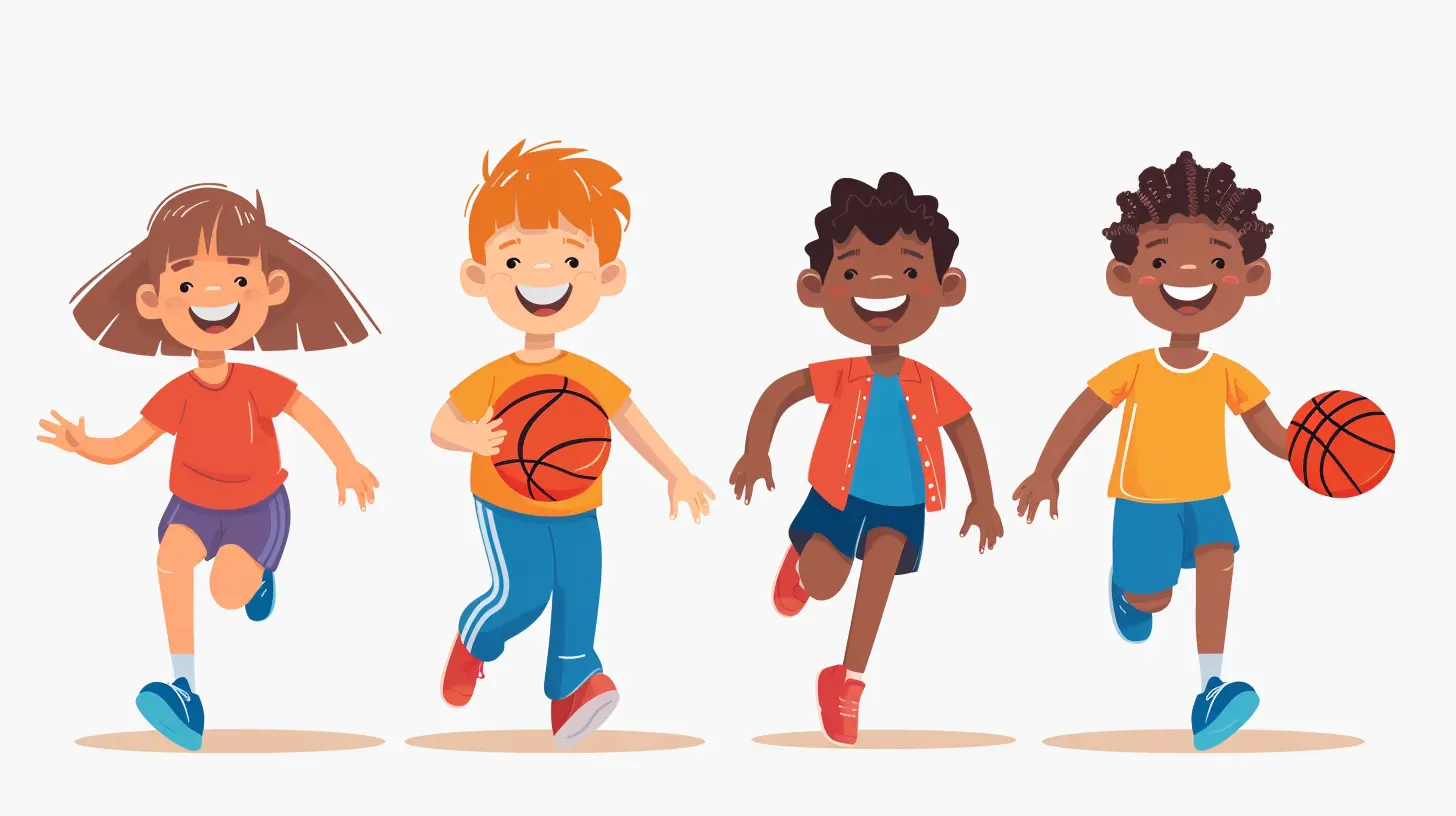Using Physical Education to Build Confidence and Self-Esteem
2 May 2025
Physical education (PE) isn’t just about learning sports or staying fit—it’s a powerful tool for shaping self-confidence and self-esteem. Think about it: when you push yourself to run a little faster, jump a little higher, or master a new skill, you’re not just training your body—you’re training your mind to believe in your abilities.
In this article, we’ll break down how physical education can boost confidence, improve self-esteem, and help students develop a healthier self-image.

Why Confidence and Self-Esteem Matter
Confidence and self-esteem shape how we see ourselves and interact with the world. High self-esteem makes us feel capable and more willing to take on challenges. On the other hand, when confidence is low, even small obstacles can feel overwhelming.For students, especially during their formative years, physical education plays a significant role in shaping how they view themselves. Success in physical activities can translate into confidence in other aspects of life, from academics to social interactions.

How Physical Education Builds Confidence
1. Encouraging Personal Growth
Physical education is all about improvement. Whether it's running a faster mile, hitting a target in archery, or performing a perfect cartwheel, students see their own progress. And that progress? It builds confidence.When you see yourself getting better at something, no matter how small, it reinforces the belief that effort leads to growth. That realization spills over into other areas of life—academics, social interactions, and personal challenges.
2. Teaching Resilience and Perseverance
Not every attempt is a success, and that’s okay! PE teaches students that failure isn’t the end—it’s just a stepping stone to success. Maybe you didn’t score the winning goal, but you gave it your best shot. That kind of mindset builds resilience, teaching students to bounce back and keep pushing forward.This ability to deal with setbacks helps students develop emotional strength, which is crucial for self-esteem. They learn that mistakes aren’t failures; they’re just part of the learning process.
3. Promoting a Positive Body Image
Body image plays a huge role in self-esteem, especially during adolescence. PE helps students appreciate what their bodies can do, rather than just how they look.Through physical activity, students see their bodies as strong, capable, and resilient, instead of focusing on societal standards of beauty. This shift in mindset helps them feel more comfortable in their own skin, boosting overall self-confidence.
4. Developing Social Skills and Teamwork
Confidence isn’t just an internal thing—it’s also about how we interact with others. PE involves teamwork, communication, and cooperation, all of which help students become more confident in social settings.Working together to achieve a goal—whether winning a game or completing a relay—helps students feel valued and included. That sense of belonging can do wonders for self-esteem.
5. Setting and Achieving Goals
Setting achievable goals and working towards them is one of the best ways to build confidence. PE teaches students how to set realistic targets—like improving their endurance or learning a new move—and work towards them systematically.When students accomplish these goals, they experience a sense of pride and achievement. That feeling reinforces the idea that they are capable of success, increasing their overall self-worth.

The Psychological Impact of Physical Activity
Exercise isn’t just good for the body; it’s a game-changer for the mind too. Here’s why:- Releases Endorphins – Physical activity triggers the release of endorphins, the body's natural "feel-good" chemicals. These help reduce stress and promote a sense of well-being.
- Reduces Anxiety and Depression – Regular movement can help combat feelings of anxiety and depression, which often contribute to low self-esteem.
- Boosts Energy Levels – Feeling strong and energetic naturally makes people feel more confident in their abilities.
- Improves Concentration and Focus – A clear mind leads to better decision-making, which adds to a student’s sense of control and confidence.

How Teachers and Parents Can Support Confidence Building
Encouraging Participation Over Perfection
One of the biggest confidence killers is the fear of not being good enough. Teachers and parents should emphasize participation over perfection. The goal isn’t always to win but to challenge oneself and have fun.Celebrating Small Wins
Every step forward deserves recognition. Whether it’s a student making their first successful free throw or finally jogging without stopping, celebrating progress keeps motivation and self-belief strong.Creating an Inclusive Environment
Not every student is naturally athletic, and that’s okay. Ensuring that PE classes are welcoming to all skill levels helps students feel safe to try new things without fear of judgment.Promoting a Growth Mindset
Encouraging students to view challenges as opportunities rather than obstacles fosters resilience. A growth mindset teaches them that skills can be developed through effort and persistence.Real-Life Success Stories
Many athletes started out as kids with low confidence but built their self-esteem through sports and physical activity. For instance, basketball legend Michael Jordan was cut from his high school team but used that setback as motivation. Today, he’s considered one of the greatest players of all time.Even outside of professional sports, everyday students experience transformations in confidence through physical education. Whether it’s a shy student finding their voice through team sports or a struggling student discovering their strength in the gym, PE has the power to create life-changing confidence boosts.
Final Thoughts
Physical education is more than just gym class—it’s a foundation for building confidence and self-esteem. By encouraging goal-setting, resilience, social interaction, and body positivity, PE helps students grow into confident, capable individuals.So, the next time you lace up your sneakers for PE, remember: you’re not just working on your physical health—you’re building the kind of confidence that lasts a lifetime.
all images in this post were generated using AI tools
Category:
Physical EducationAuthor:

Monica O`Neal
Discussion
rate this article
6 comments
Garrett Valentine
Great insights! Physical education truly fosters confidence and self-esteem in students' development.
May 7, 2025 at 6:31 PM

Monica O`Neal
Thank you! I'm glad you found the insights valuable—physical education plays a crucial role in boosting students' confidence and self-esteem.
Easton Warren
Love this! PE truly empowers kids!
May 6, 2025 at 12:58 PM

Monica O`Neal
Thank you! I'm glad you agree—PE plays a vital role in fostering confidence and self-esteem in children.
Ziva Webster
This article highlights the vital role of physical education in fostering confidence and self-esteem among students. By engaging in sports and physical activities, learners not only enhance their physical skills but also develop resilience and a positive self-image that extends beyond the classroom.
May 5, 2025 at 7:12 PM

Monica O`Neal
Thank you for your insightful comment! I'm glad you resonate with the idea that physical education significantly contributes to students' confidence and self-esteem.
Tamara Cummings
Thank you for this insightful article! I appreciate how it highlights the vital role physical education plays in developing confidence and self-esteem in students. It's encouraging to see educators recognize the importance of physical activity not just for health, but also for fostering personal growth and resilience. Well done!
May 4, 2025 at 10:25 AM

Monica O`Neal
Thank you for your kind words! I'm glad the article resonated with you and highlighted the importance of physical education in personal development.
Caitlin Price
Absolutely loved this article! Who knew that mastering the art of dodgeball could boost self-esteem? With every kick and stretch, we're not just breaking a sweat but also building confidence—one playful leap at a time! Let's move, groove, and shine!
May 3, 2025 at 7:35 PM

Monica O`Neal
Thank you! I'm thrilled you enjoyed the article and recognize how physical activities like dodgeball can empower us both physically and emotionally! Let's keep shining!
Derek Griffin
Great article! It's inspiring to see how physical education can boost confidence and self-esteem. Encouraging kids to embrace movement truly helps them thrive both on and off the field!
May 2, 2025 at 4:46 AM

Monica O`Neal
Thank you for your thoughtful comment! I'm glad you found the article inspiring. Encouraging movement is indeed key to building confidence in kids!




